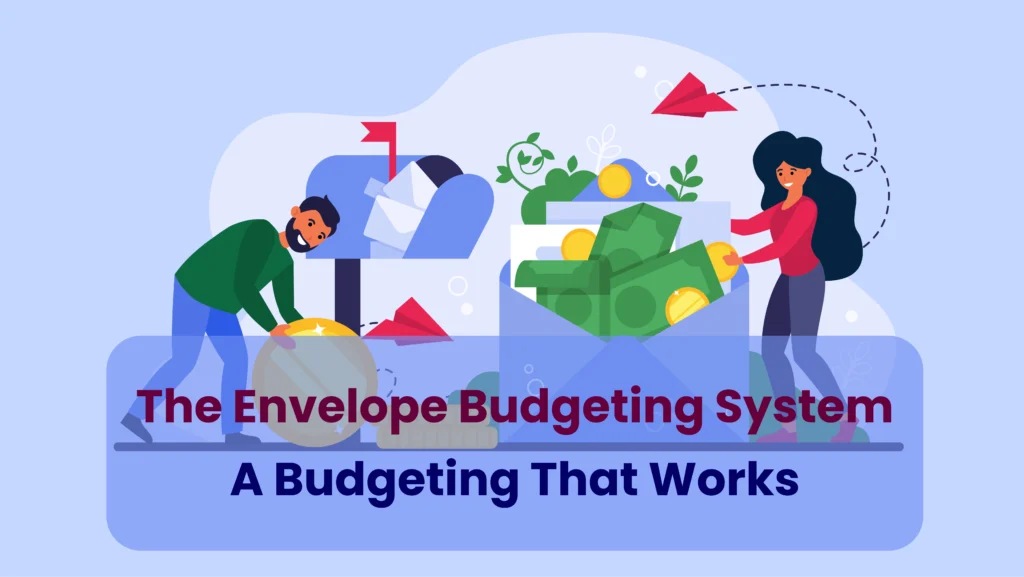Budgeting and Saving: What’s the Difference and Why Both Matter
When it comes to personal finance, budgeting and saving are often used interchangeably, but they represent two very different and equally important concepts. Understanding the distinction between budgeting and saving is essential for building a solid financial foundation. While budgeting helps you manage your money in the short term, saving ensures that you’re prepared for future expenses and financial goals. Both work together to keep you on track, avoid debt, and provide long-term security.
In this article, we’ll explore what budgeting and saving really mean, how they differ, and why mastering both is crucial for achieving financial success. By the end, you’ll have a clearer understanding of how to integrate these two financial tools into your life for better financial health and peace of mind.

What is Budgeting?
Definition of Budgeting
At its core, budgeting is the process of creating a plan for your money. A budget outlines how you’ll allocate your income across various categories, including essential expenses, discretionary spending, and financial goals. Essentially, a budget is a financial roadmap that helps you control your spending and ensure that you’re living within your means.
Budgeting is often done on a monthly basis, but it can be adjusted based on your income cycle or financial needs. The goal of budgeting is to give you a clear understanding of where your money goes and to ensure that you’re not overspending in any particular area.
Key Components of a Budget
- Income: This includes your salary, bonuses, freelance earnings, and any other sources of income.
- Fixed Expenses: These are regular, recurring costs that remain the same every month, such as rent or mortgage payments, utilities, insurance, and loan payments.
- Variable Expenses: These are costs that can fluctuate from month to month, such as groceries, transportation, entertainment, and dining out.
- Financial Goals: Budgets also include goals like saving for a vacation, building an emergency fund, or paying off debt.
The Purpose of Budgeting
The primary purpose of budgeting is to ensure that you have enough money to cover your necessary expenses and prevent overspending. It’s a tool for financial clarity, showing exactly how much money you’re bringing in and where it’s going. A well-constructed budget ensures that you’re allocating your money in a way that aligns with your financial priorities.
For example, if you’re saving for a new car, your budget helps you ensure that a portion of your income is consistently set aside for that goal. Budgeting also helps avoid impulsive purchases or overspending, which can lead to debt and financial stress.
Benefits of Budgeting
Budgeting offers a range of benefits, including:
- Financial Clarity: A budget gives you a clear view of your financial situation, showing where your money is going each month.
- Mindful Spending: When you have a budget, you become more intentional with your spending, ensuring that you don’t overspend on non-essentials.
- Prevents Debt: By living within your means, you avoid accumulating unnecessary debt.
- Achieving Goals: A budget allows you to allocate money toward specific financial goals, whether they’re short-term (like a vacation) or long-term (like retirement).
What is Saving?
Definition of Saving
Saving is the act of setting aside a portion of your income for future use. Unlike budgeting, which focuses on how money is spent, saving is about deliberately not spending a portion of your earnings and putting that money toward future needs or goals. It’s a proactive approach to preparing for the unexpected, as well as working toward long-term financial objectives.
Types of Savings
- Emergency Fund: This is a savings reserve meant to cover unexpected expenses like medical bills, car repairs, or job loss. It acts as a financial buffer to prevent you from going into debt when life throws a curveball.
- Short-Term Savings: These savings are for upcoming, planned expenses such as vacations, home repairs, or buying new furniture. These funds typically have a specific purpose and are spent within a year or two.
- Long-Term Savings: This includes money set aside for major future goals, such as buying a house, funding your child’s education, or retirement. Long-term savings often require consistent contributions over many years.
The Purpose of Saving
The main purpose of saving is to ensure financial security and peace of mind. By saving regularly, you build a cushion for unexpected expenses and avoid the need to rely on credit cards or loans. In addition, saving allows you to achieve financial independence by accumulating wealth over time and preparing for large purchases or life events.
For instance, if you’re planning to retire, consistent savings over the years will help you accumulate enough wealth to maintain your lifestyle during retirement. Similarly, having an emergency fund ensures that a medical bill or car repair doesn’t throw your entire financial plan off course.
Benefits of Saving
Saving offers numerous advantages:
- Financial Cushion: An emergency fund protects you from unexpected financial hardships and ensures that you can handle surprises without going into debt.
- Avoids Credit: By saving for future purchases, you reduce the need to rely on credit cards or loans, avoiding interest and debt accumulation.
- Achieves Financial Goals: Whether it’s saving for a home, retirement, or a vacation, consistent savings help you reach your financial milestones.
Key Differences Between Budgeting and Saving
While budgeting and saving are both essential to personal finance, they serve different purposes. Here are the key differences between the two:
Focus and Scope
- Budgeting focuses on the short-term management of your income and expenses. It’s about making sure you have enough money each month to cover your needs and wants while staying within your financial means.
- Saving focuses on the long-term accumulation of wealth or financial reserves. It’s about setting money aside for future needs or unexpected expenses.
Process and Mindset
- Budgeting requires daily or monthly management of your income and spending. It’s about allocating money efficiently across various categories to ensure that your immediate financial obligations are met.
- Saving requires a long-term mindset. It involves delaying gratification by setting aside money today for future use. Saving teaches you to prioritize future needs over present desires.
Purpose and Goals
- Budgeting helps you manage your cash flow and ensure that you don’t spend more than you earn. It allows you to meet short-term financial goals, like paying rent, groceries, and utilities.
- Saving helps you prepare for large purchases, emergencies, or life milestones like buying a home, retirement, or funding a child’s education.
Time Frame
- Budgeting is typically short-term and focuses on managing money month to month.
- Saving is more long-term, often focusing on goals that span years or even decades.
Example
Imagine someone who earns $3,000 per month. A budget ensures that they have enough to cover their rent, utilities, groceries, and entertainment. Meanwhile, saving helps them set aside money for a future vacation, an emergency fund, or a down payment on a house.
≫ Learn More: How to Make a Monthly Budget That Works
How Budgeting and Saving Work Together
Why You Need Both
While budgeting and saving are distinct, they work best when integrated. Budgeting without saving can leave you vulnerable to unexpected expenses, while saving without budgeting makes it difficult to manage day-to-day expenses effectively.
By including savings in your budget, you ensure that you’re not only covering your current needs but also preparing for the future. Budgeting helps you live within your means, and saving helps you build financial security.
Integrating Saving Into Your Budget
To make saving a habit, it’s important to incorporate it into your budget. A good rule of thumb is to allocate 10-20% of your income toward savings. By treating savings as a non-negotiable “expense,” you ensure that you’re consistently putting money aside each month.
One of the easiest ways to do this is through automatic transfers. Set up an automatic transfer from your checking account to a savings account each payday. This way, the money is saved before you even have a chance to spend it.
Short-Term vs. Long-Term Goals
Budgeting helps you manage your short-term financial obligations like paying bills, groceries, and entertainment. Saving, on the other hand, prepares you for long-term financial goals like buying a house, investing in education, or retirement.
By balancing both, you ensure that you’re not only taking care of today’s needs but also preparing for tomorrow’s financial opportunities.
Example
A family uses budgeting to ensure they have enough for rent, groceries, and entertainment while also saving for a family vacation next summer. At the same time, they contribute regularly to a retirement account and an emergency fund to prepare for the future.
Why Both Matter for Financial Success
Building a Foundation of Financial Health
Budgeting ensures that you’re living within your means and not overspending. Saving, on the other hand, builds a financial cushion for emergencies and long-term goals. Together, they create a strong foundation for financial success by balancing the need for immediate financial management and long-term security.
Preventing Financial Stress
Without a budget, it’s easy to overspend, leading to debt and financial stress. Without savings, you’re left vulnerable to unexpected expenses, like a car repair or medical bill. By budgeting and saving, you reduce the likelihood of financial surprises and stress.
Achieving Financial Freedom
Budgeting helps you take control of your day-to-day finances, while saving allows you to build wealth and work toward financial freedom. With a solid budget and a consistent savings plan, you’re setting yourself up for long-term success, whether that means retiring early, buying a home, or achieving other financial milestones.
Example
A young professional uses budgeting to manage monthly expenses like rent, utilities, and entertainment. Simultaneously, they save a portion of their income for retirement and future investments. By mastering both budgeting and saving, they’re on the path to long-term financial independence.
≫ Learn More: 5 Budgeting Tips for College Students: How to Save Money
Conclusion
Understanding the difference between budgeting and saving is key to financial success. Budgeting ensures that you’re managing your money effectively in the short term, while saving prepares you for future financial goals and emergencies. Both are essential tools that work together to build a secure financial future.
Take the time to assess your current budgeting and saving habits. Are you living within your means? Are you setting aside enough for future needs? By mastering both, you’ll be well on your way to achieving financial stability, reducing stress, and reaching your long-term goals.
















